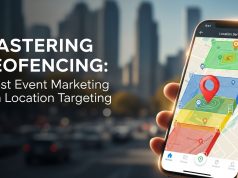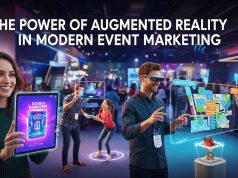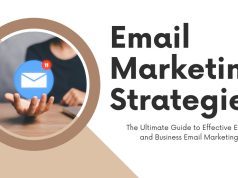Event digital marketing is key to promoting and managing successful events, from corporate conferences to community gatherings. By leveraging social media, email campaigns, content marketing, and automation, organizers can boost engagement, attendance, and ROI. Strategic planning, multi-channel promotion, and post-event follow-up ensure a memorable and measurable attendee experience.
Building Your Event Digital Marketing Foundation
Define Your Event Goals and Audience
Successful event digital marketing begins with clear objectives and a deep understanding of your target audience. Are you aiming to generate leads, build brand awareness, or foster community connections? Your goals will shape every aspect of your digital strategy.
Research your ideal attendees thoroughly. What social media platforms do they use? When are they most active online? What content formats resonate with them? This information guides your channel selection and content creation efforts.
Create detailed buyer personas that include demographic information, professional backgrounds, interests, and digital behaviors. These personas help you craft messaging that speaks directly to your audience’s needs and motivations.
Develop a Multi-Channel Approach
Event digital marketing works best when you leverage multiple channels to reach your audience wherever they spend their time online. Each platform offers unique advantages for different stages of your event marketing funnel. Social media platforms excel at building awareness and engagement. LinkedIn works well for professional events, Instagram showcases visual elements, and Twitter facilitates real-time conversations. Choose platforms where your target audience is most active rather than trying to maintain a presence everywhere. You can explore more multi-channel tactics in Social Media Event Marketing Guide.
Social media platforms excel at building awareness and engagement. LinkedIn works well for professional events, Instagram showcases visual elements, and Twitter facilitates real-time conversations. Choose platforms where your target audience is most active rather than trying to maintain a presence everywhere.
Email marketing remains one of the most effective channels for event promotion. It allows for personalized messaging, detailed information sharing, and direct calls to action. Use email sequences to nurture leads from initial awareness through post-event follow-up.
Content marketing through blog posts, videos, and downloadable resources helps establish your event’s value proposition while improving search engine visibility. Educational content positions your event as a valuable learning opportunity rather than just another gathering.
Building an Engaging Event Experience Online
Digital marketing for events isn’t just about getting people to register—it’s about creating an experience that starts long before the first session begins and continues well after the event ends. Every interaction, from your website to social media posts, email updates, and app notifications, contributes to the overall attendee experience.
Pre-event, this means providing content that excites and informs. Sharing speaker highlights, sneak peeks of workshops, and behind-the-scenes videos gives attendees a reason to anticipate the event. Small touches, like interactive polls or quizzes leading up to the event, allow participants to feel involved even before they arrive.
During the event, digital engagement continues to play a crucial role. Social media live updates, photo opportunities, and live-streamed sessions make the event accessible to a wider audience and encourage attendees to share their experiences online. Digital tools like event apps or interactive platforms provide opportunities for networking, Q&A sessions, and real-time feedback, keeping participants active and engaged.
After the event, follow-up content ensures the connection doesn’t fade. Sharing session recordings, downloadable resources, and post-event surveys reinforces the value of the event, encourages attendees to revisit key takeaways, and builds anticipation for future events. By thinking of your digital marketing as a continuous experience rather than a series of isolated promotions, you can create a stronger connection with your audience and turn one-time attendees into long-term advocates.
Pre-Event Digital Marketing Strategies

Create Compelling Event Content
Content creation forms the backbone of your pre-event marketing efforts. Develop a content calendar that builds excitement and provides value to potential attendees throughout your promotional period.
Speaker spotlights, behind-the-scenes content, and sneak peeks of agenda items generate curiosity and social proof. Video content performs particularly well for event promotion, offering higher engagement rates than static posts. Check out Influencer Events Boost Attendance for examples of leveraging influencers effectively.
User-generated content campaigns encourage your audience to share their excitement and experiences. Create branded hashtags, run photo contests, or ask followers to share why they’re attending your event. This organic promotion extends your reach while building community around your event.
Leverage Early Bird and Influencer Partnerships
Early bird campaigns create urgency while rewarding prompt decision-makers. Use countdown timers, limited-quantity offers, and exclusive perks to motivate early registration. Digital advertising can amplify these time-sensitive offers to reach broader audiences.
Partner with industry influencers, thought leaders, and complementary brands to expand your promotional reach. Guest blog posts, podcast appearances, and cross-promotional social media campaigns tap into established audiences that align with your target demographic.
Employee advocacy programs turn your team members into event ambassadors. Provide them with ready-to-share content and encourage authentic posts about your event’s value and their excitement about attending.
During-Event Digital Engagement

Real-Time Social Media Activation
Live social media coverage transforms your event into a digital experience that extends beyond your physical or virtual venue. Document key moments, share quotes from speakers, and highlight attendee interactions to create FOMO (fear of missing out) among those not attending.
Encourage attendee participation through branded hashtags, photo opportunities, and social media contests. Create Instagram-worthy moments with attractive backdrops, interactive installations, or unique swag that attendees want to share.
Live streaming key sessions or behind-the-scenes moments allows remote audiences to participate in your event experience. This extends your reach while providing additional value to both virtual and in-person attendees.
Interactive Digital Experiences
Event apps and digital platforms enhance attendee engagement while collecting valuable data about preferences and behaviors. Tools and automation strategies can also be explored in Event Marketing Automation Boost ROI.
Push notifications through event apps can guide attendee behavior, promote sponsors, and share real-time updates. Use these strategically to enhance the experience without overwhelming participants.
Digital surveys and polls during sessions encourage active participation while providing speakers with immediate feedback. This real-time interaction improves session quality and keeps audiences engaged.
Post-Event Follow-Up and Measurement
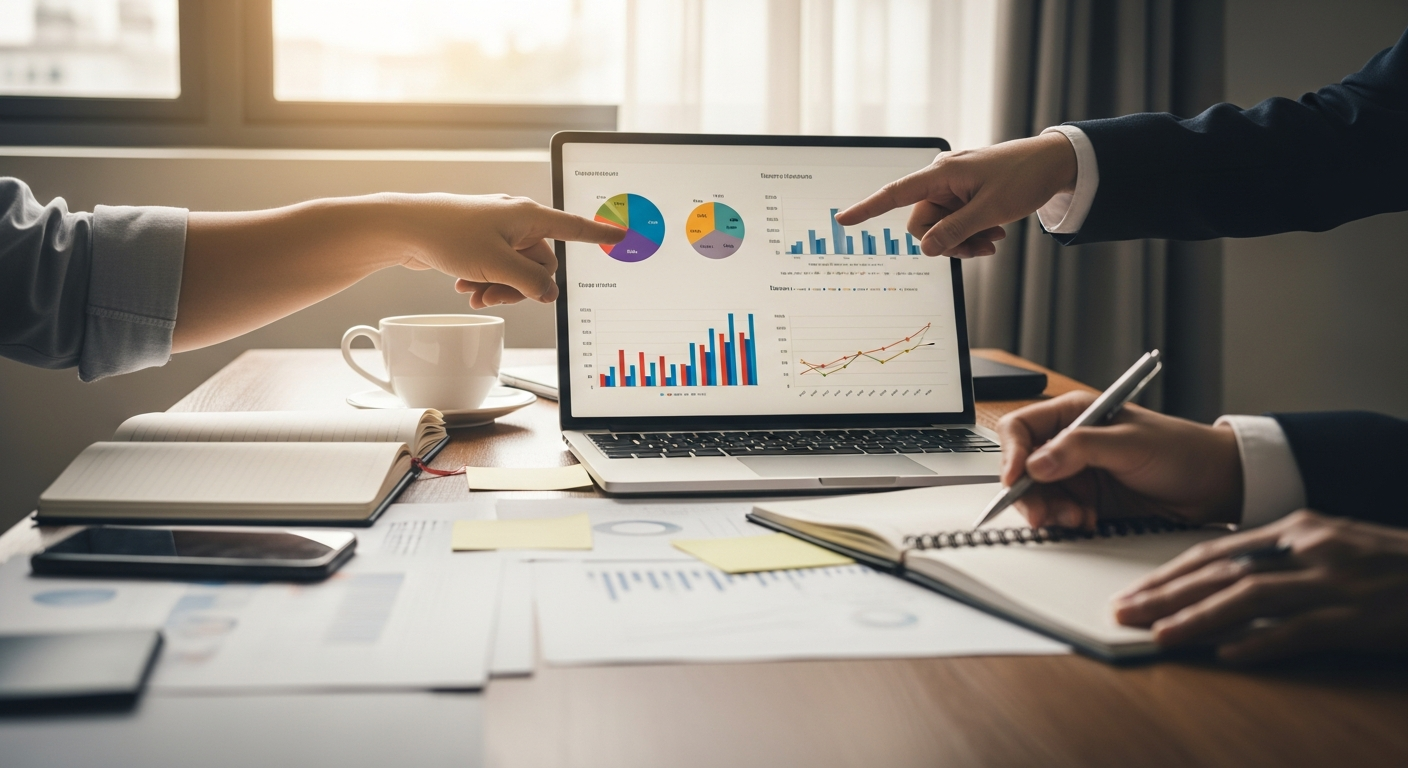
Nurture Relationships Beyond the Event
Your event digital marketing strategy shouldn’t end when your event does. Post-event communication helps maintain relationships, gather feedback, and build anticipation for future events.
Thank you emails, session recordings, and additional resources keep your event top-of-mind while providing ongoing value to attendees. Include clear next steps, whether that’s scheduling follow-up meetings, joining your community, or registering for future events.
Retargeting campaigns allow you to stay connected with event attendees through digital advertising. Promote related content, upcoming events, or special offers to this engaged audience segment.
Analyze Performance and ROI
Comprehensive analytics help you understand which digital marketing efforts drove the best results. Track metrics across all channels, including website traffic, social media engagement, email open rates, and conversion rates.
Attribution modeling helps you understand the customer journey from first awareness to event registration. This insight guides budget allocation for future event marketing campaigns.
Post-event surveys provide qualitative data about attendee satisfaction and preferences. Combine this feedback with quantitative analytics to develop a complete picture of your event’s success and areas for improvement.
Digital Marketing Tools for Event Success
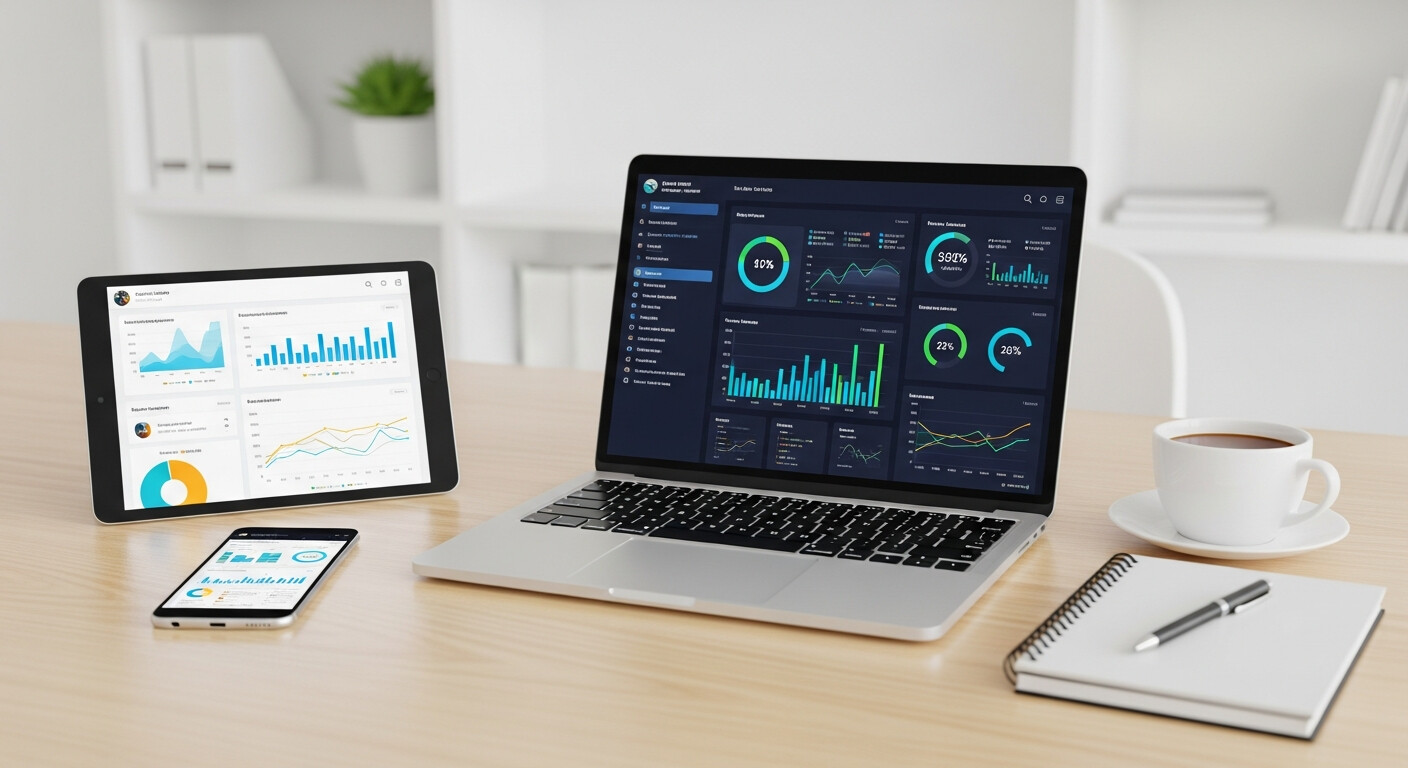
Essential Platforms and Software
Event management platforms are the backbone of modern event marketing, combining registration, promotion, and analytics in one place. Platforms like Eventbrite, Hopin, and Cvent cater to different event types and sizes, from small workshops to large-scale conferences. These tools simplify attendee registration, ticketing, and check-in, while also providing insights into attendee demographics and behavior. Many also offer integrations with email and CRM systems, making it easier to manage your marketing efforts seamlessly.
Email marketing tools are crucial for nurturing leads and keeping attendees informed. Platforms such as Mailchimp, Constant Contact, and HubSpot allow you to segment audiences, automate email sequences, and personalize messages based on attendee behavior. Integrating these tools with your event management software ensures that communications are timely, relevant, and consistent.
Social media management tools help maintain an active and engaging online presence across multiple platforms. Tools like Hootsuite, Buffer, and Sprout Social allow you to schedule posts, monitor engagement, and analyze which content performs best. By tracking mentions, hashtags, and audience interactions, you can adjust your strategy in real time to maximize reach and impact.
Analytics and Measurement Tools
Analytics are critical for understanding the effectiveness of your digital event marketing efforts. Google Analytics, for example, provides detailed insights into website traffic, visitor behavior, and conversion paths. By setting up event-specific tracking, you can see which marketing channels drive registrations and engagement.
Social media analytics tools give a clear view of how your content resonates with your audience. Native platform analytics, as well as third-party tools, offer metrics like engagement rates, reach, and follower growth, helping you identify the types of content that generate the most interest.
Event-specific analytics platforms go even deeper, tracking attendee behavior during the event. They measure session popularity, app interactions, and engagement levels, providing actionable insights that help optimize future events and demonstrate clear ROI to stakeholders. Combining these tools ensures you can measure every aspect of your event marketing and make data-driven decisions for improvement.
Event Marketing Automation
Automation is no longer optional—it’s essential for running efficient and effective event marketing campaigns. With the right tools, you can schedule social media posts, segment email lists, send reminders, and personalize content at scale, making sure your messages reach the right people at the right time.
Automated workflows can guide attendees through every stage of the event journey. For example, they can send reminders about early-bird pricing, provide personalized session recommendations, and trigger post-event surveys automatically. This saves time, reduces manual errors, and ensures a consistent experience for every attendee.
By using automation strategically, you not only streamline communication but also create a more personalized and professional experience that keeps attendees engaged from registration through post-event follow-up.
Transforming Your Event Marketing Success
Event digital marketing requires a strategic approach that considers every touchpoint in the attendee journey. From initial awareness through post-event follow-up, digital channels provide opportunities to engage, inform, and inspire your audience.
Success comes from understanding your audience deeply, creating valuable content consistently, and measuring results to continuously improve your approach. The most effective event marketers treat each event as part of an ongoing relationship-building process rather than a one-time transaction.
Start implementing these strategies for your next event by choosing two or three channels where your audience is most active. Focus on creating authentic, valuable content that addresses their needs and interests. As you gain experience and data, expand your digital marketing efforts to include additional channels and more sophisticated tactics.
Just as digital creators adapt to changes in market sentiment—like those explained in why the NFT market crashed—event marketers must continuously refine their approach to stay relevant and impactful.
Frequently Asked Questions (FAQ)
What is event digital marketing and how is it different from traditional event promotion?
Event digital marketing focuses on using online channels such as social media, email, search engines, content marketing, and analytics to promote and manage events. Unlike traditional methods like print ads or physical flyers, digital marketing allows precise targeting, real-time optimization, and measurable performance across every stage of the event lifecycle.
How early should digital marketing for an event begin?
Most successful events begin digital marketing efforts three to six months in advance, depending on event size and audience. Larger conferences and industry events often require longer lead times to build awareness, secure speakers, and nurture interest, while smaller events can succeed with shorter but highly focused campaigns.
Which digital marketing channel works best for event promotion?
There is no single best channel for all events. The most effective channel depends on your audience, event type, and goals. Email marketing typically delivers the highest conversion rates, social media excels at awareness and engagement, and search advertising captures high-intent traffic. A coordinated multi-channel approach usually delivers the strongest results.
How do you measure the success of event digital marketing?
Success is measured by aligning metrics with event goals. Common indicators include registration numbers, cost per attendee, engagement rates, session attendance, lead quality, and post-event conversions. Combining digital analytics with attendee feedback provides a complete picture of performance and ROI.
Is digital marketing effective for small or local events?
Yes, digital marketing is especially effective for small and local events because it allows precise geographic targeting and budget control. Local SEO, social media ads, email lists, and community partnerships can generate strong attendance without requiring large advertising budgets.
What role does content play in event digital marketing?
Content is central to event promotion because it communicates value, builds trust, and supports discovery. Educational articles, videos, speaker insights, and post-event recaps extend the life of your event while positioning it as a meaningful experience rather than a simple date on the calendar.


